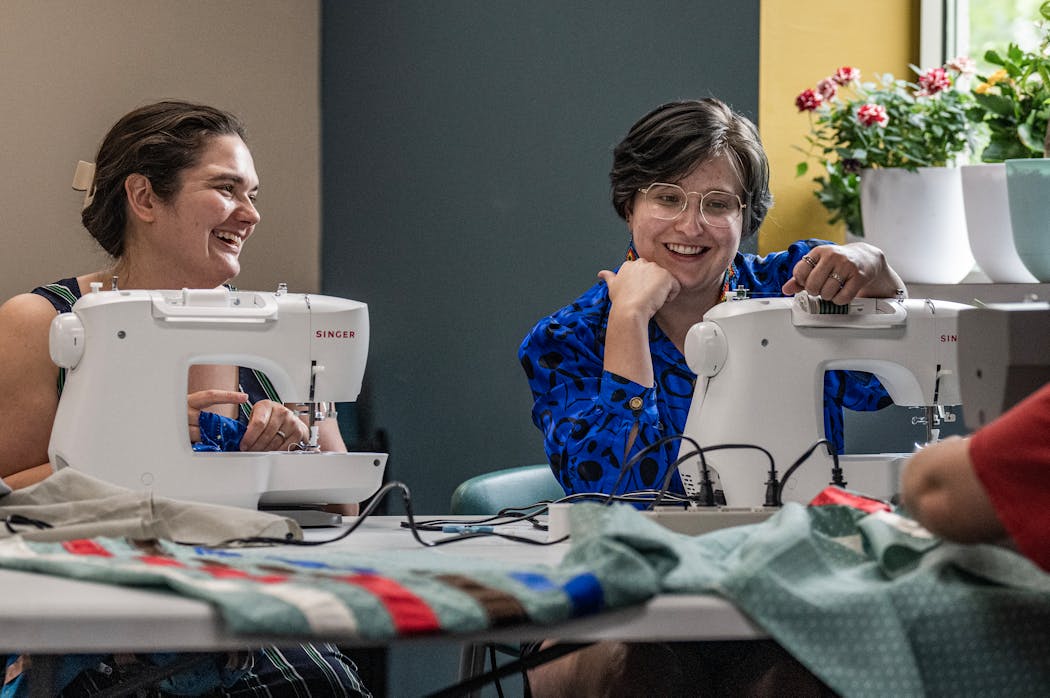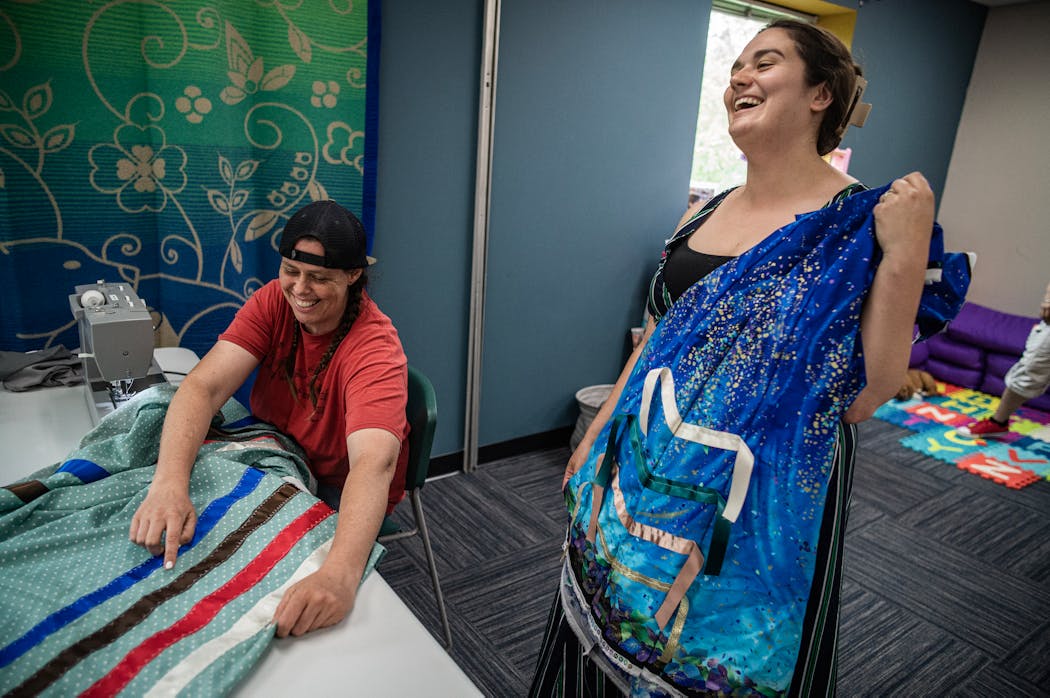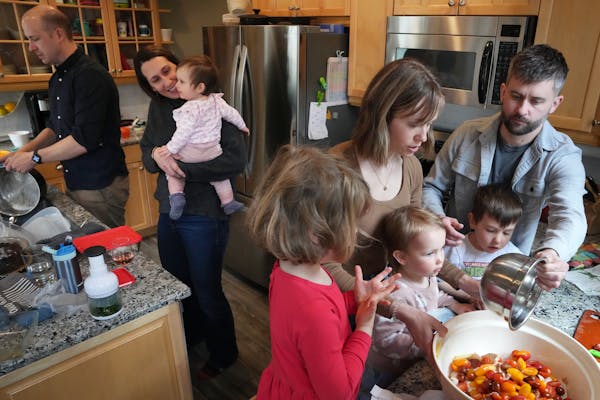Em Matson leaned intently over a long table to arrange the delicate pieces of water lily appliqué.
Amid the mechanical whir of sewing machines and the lively chatter during a community regalia making night, Matson zeroed in on the task at hand: finishing their ribbon pants in time for the Two Spirit Powwow.
On Saturday, New Native Theater will sponsor Minneapolis' second annual "Reclaiming Our Identities" Two Spirit Powwow, part of a burgeoning movement of powwows across the country that honor Two Spirit and indigiqueer (Indigenous and queer) people.
"I can't wait to see everybody turn out. I know that if you come specifically to this powwow, it means you support our community," said Wase Mannidu Ikwe, a Two Spirit person of the Rocky Boy Chippewa Cree Tribe. "It's nice to see our allies. As Two Spirits, we make large impacts in the native community. We are valid."
"Two Spirit" is an umbrella term derived from the Anishnaabe "niizh manidoowag" (literally translated as "two spirits") that describes native people who exist outside the gender binary and hold sacred roles in their communities. Popularized by activists in the 1990s, the term honors multiplicity within native conceptions of gender identity and spirituality. It also reflects a pre-colonial legacy of gender diversity that is being reclaimed today.
"Prior to European colonization, gender diversity was the norm for many tribes. Gender was based on your roles and responsibilities, not what you looked like," said Matson, a Two Spirit of the Sault Ste. Marie Ojibwe and one of the organizers of Minneapolis' Two Spirit Powwow.
In the months leading up to the powwow, organizers have hosted regalia-making nights for local Two Spirit and indigiqueer folks to make ceremonial clothing that authentically represents their identities.
"Our goal was for you to come and make whatever makes you feel comfortable," said organizer Beth Seidl of the White Earth Band of Chippewa. "We wanted everyone to feel safe, without any chance of someone coming by and saying, 'You're a boy. Why are you making a ribbon skirt?' if that's not how they identify."
At the Two Spirit Powwow, everyone will be encouraged to dress and dance on their own terms. Organizers hope this powwow can serve as an entry point for Two Spirit, indigiqueer, and other natives who have been previously unable to participate in powwow as their full selves.
"There can be shaming at powwow. If you're an adult, you're expected to know what to do, but not everyone has the opportunity to learn," said regalia artist and organizer Fawn Youngbear-Tibbetts of the White Earth Band. "This powwow is set up by the community, for the community. It's during Pride. Our whole planning committee is queer. It changes the accessibility for people."
Before colonization instated the gender binary, many Two Spirit people held sacred roles in their tribes as healers, teachers and ceremonial leaders. For organizers and participants, the powwow theme of "Reclaiming Our Identities" means returning to the roles, traditions and lifeways that were suppressed by forced assimilation, Christianity and the boarding school system.
"We already had these things," said Matson. "We're finding them again and bringing them back."
Healing from colonial violence also means confronting how harm has been internalized in native communities. Many powwows today are still entrenched in the gender binary, with separate dance categories, competitions and regalia for men and women.
"The powwows that I've been to are very gendered," said Seidl. "Grass dance and chicken dance are 'men's' dances, so I never see Two Spirit, indigiqueer or nonbinary people doing them. I don't see Two Spirit people wearing jingle dresses. There's a fear that as soon as you leave the circle, somebody will tell you that you don't belong."
For Seidl, this dynamic is unacceptable. Traditionally, women wear ribbon skirts, and men wear ribbon shirts. But she is more masculine and doesn't wear skirts, so she's making a ribbon shirt.
As a Two Spirit person, Matson made ribbon pants to center their belonging as someone who "walks both ways."
"Our identities were stolen by colonization," said Seidl. "We are reclaiming our place. At the Two Spirit Powwow, we want everyone to know that they are welcome. You can enter the circle as you are. If you're a trans woman in a ribbon skirt, you're welcome here. If you're a trans man doing the chicken dance, you're welcome here."
Last year's inaugural powwow was a success, with roughly 300 attendees. For local Two Spirit and indigiqueer people, this powwow is more than a singular event — it's an affirmation of their belonging.
If you go
What: Two Spirit Powwow by the New Native Theater
When: Welcome starts at 11 a.m.
Where: South High School, 3131 19th Av. S., Mpls.
Info: 612-367-7639, info@newnativetheatre.org
Pope visits Venice to speak to the artists and inmates behind the Biennale's must-see prison show

Nicole Kidman, who 'makes movies better,' gets AFI Life Achievement Award
Zendaya tennis movie 'Challengers' scores at weekend box office

Once dominant at CBS News before a bitter departure, Dan Rather makes his first return in 18 years




